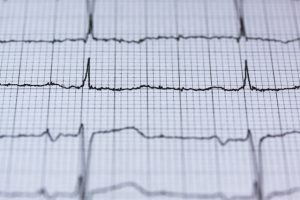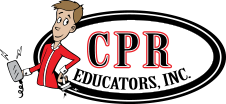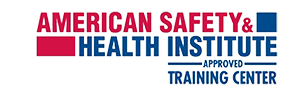During our Raleigh CPR training and first aid classes,  one of the symptoms and signs of a medical emergency we talk about is chest pain. Too often, people brush off chest pain, ignoring that it can be the sign of a heart attack, when early detection and treatment can be a literal lifesaver.
one of the symptoms and signs of a medical emergency we talk about is chest pain. Too often, people brush off chest pain, ignoring that it can be the sign of a heart attack, when early detection and treatment can be a literal lifesaver.
Learn more about chest pain, the common causes, and the best methods for treatment.
What is Chest Pain?
Chest pain is defined as any pain that you feel through your upper torso, typically from your neck to the top of your abdomen. This can include any sensation of discomfort, from sharp pain and dull ache to a tightness or burning sensation in the chest. It can be localized to one specific spot, or it can spread or radiate through the neck, abdomen, or spread into the back.
Causes of Chest Pain?
When someone is experiencing chest pain, often, the first thought is a heart attack. That is certainly one of the causes of chest pain in Raleigh, but there are numerous issues that can cause pain in the chest and upper torso.
Heart Attack
The most severe cause of chest pain, this occurs when blood flow to the heart is blocked due to a build up or clot of plaque in the arteries, causing tissue to die. This is often accompanied by shortness of breath, nausea, dizziness, or pain in the arm, back, or jaw. It’s important to note that chest pain is not always present during a heart attack.
Angina
Angina may feel like a heart attack, and this pain is caused by reduced blood flow and oxygen to the heart. Often, the pain is triggered by excitement, exertion, or stress, while rest relieves the pain. People who suffer with angina are a candidate for heart attack in the future.
Lung Problems
Pneumonia, pleurisy, and bronchitis can all cause sharp pain in the lungs, especially when breathing or coughing and a deep ache in the chest. Shortness of breath, fever, and cough often exist with these issues.
Heartburn and Acid Reflux
A burning in the chest may be caused by acid reflux due to the close proximity of the esophagus to the heart. Pain is often reduced by antacids.
Additional Causes of Chest Pain
- Anxiety
- Panic attacks
- Pulled or strained muscles
- Broken or bruised ribs
- Shingles
- Pancreatitis
- Gall bladder problems
- Hernia
When to Seek Medical Treatment for Chest Pain in Raleigh
If you or someone around you is experiencing chest pain, it’s important to take this symptom very seriously. Call 911 immediately if any of these symptoms are also present:
- Shortness of breath
- Severe squeezing or tightness
- Radiant pain in the jaw, left arm, or in the back
- Nausea
- Confusion
- Sweating
- Rapid breathing
- Dizziness
- Loss of consciousness
These are all signs of a life threatening medical emergency in which a first responder or EMT is better equipped to help the victim get to the hospital safely.
Call your doctor or seek medical attention if you have the following symptoms that are a sign that you need care, even if it’s not an immediate emergency:
- Fever
- Severe cough
- Problems with swallowing
- Chest pain that doesn’t go away with the aid of an antacid or anti-inflammatory medication
CPR Training in Raleigh Saves Lives
If your loved one is experiencing chest pain, there is a possibility that while waiting for the ambulance, their condition could worsen. In the event the victim stops breathing, it’s important to know how to confidently and safely administer CPR.
At CPR Educators, we know CPR saves lives. That’s why we offer comprehensive CPR training classes in Raleigh at our American Heart Association Authorized facility as well as providing on-site CPR classes to area businesses and organizations. Contact us today at (919) 639-4848 or fill out our online contact form to learn more!



